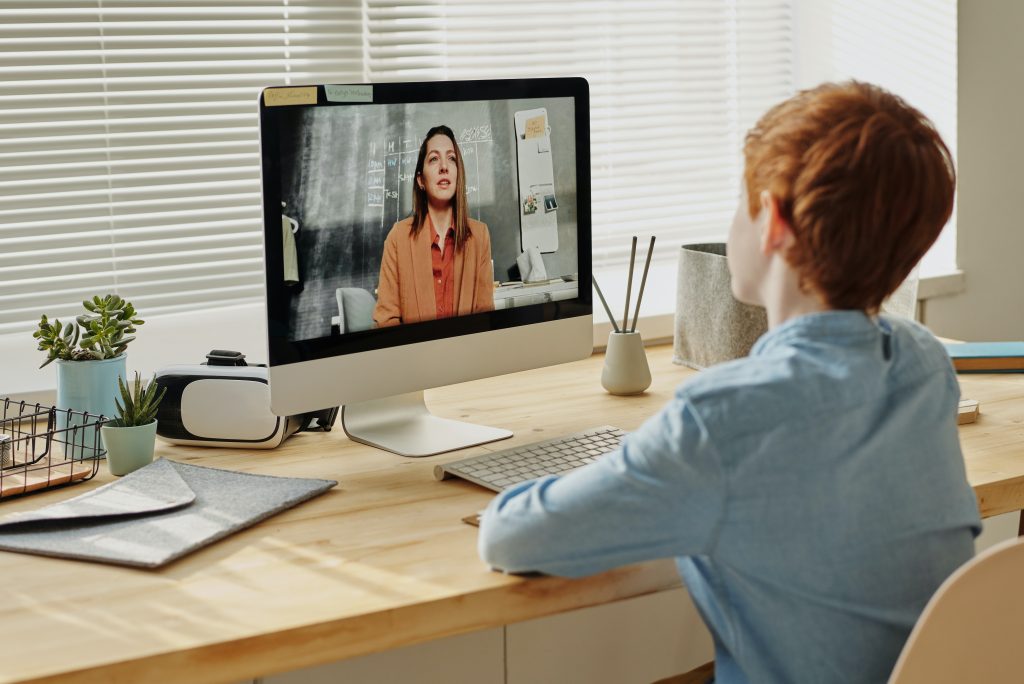At-Home Learning: Tips for Parents

At-home learning has proven to be harder on children and their parents, particularly when it comes to mental health. Parents have had to become the leader in their child’s education, making sacrifices for their work and sanity. Children of all ages are starting to reap the effects of not having contact with their peers, struggling with assignments, and the overall change of their everyday lives. Here are some tips for making at-home learning a bit easier on yourself and your child.
Create a schedule
The most important factor in being successful with at-home learning is to set a schedule and stick to it. Treat getting up in the morning as if they are going to be going to school. This doesn’t mean you have to do everything as you would normally, work this schedule around what works for your situation. Once you find what works for you and your child, it’s pertinent that you stick to the schedule to give them a sense of routine.
Environment
When you and your child find a rhythm of a schedule, the next step would be giving them an environment that is favorable for learning. This means getting rid of anything that may distract them. If you can’t find a place where you can keep an eye on them but also where they won’t so secluded they may be inclined to drift off, pick the next best thing. If that means the living room, turn off the television, and take away technology that isn’t related to classwork.
Provide love and support
Some parents may find themselves becoming their child’s teacher so you must be there to help them understand. Keep communication with their teacher to clear up any confusion or to ask how you can help your child with an assignment they are struggling with. Additionally, at this time your child will need more love and support! As frustrating as at-home learning can be, do not show these frustrations or take them out on your child.
Gamification
Some parents have seen great results in creating what’s called gamification the learning process. Gamification is “the application of game-like mechanics to non-game entities to encourage a specific behavior.” What this doesn’t mean is playing a game or making learning game-based, using toys, or electronics. The idea is to encourage them to complete milestones to get the desired behavior. If they can do this task, this way, they can earn this reward. The gamification process is helpful to help them track their work, which builds up the reward desire.
Take breaks
Sitting still and focusing on something for a long time can become mentally draining for learning children. Taking breaks for about 15-20 minutes helps your child regain focus. These breaks don’t necessarily mean letting them do whatever they want but rather giving them something else to focus on like online learning games. However, allowing them to step away from the computer giving them some playtime will help them when they’re lacking motivation. Children cannot be forced to learn and fighting with them will become stressful for you and them and may turn the learning experience into a dreadful task which opens up the door for more issues to arise.
At home, learning has taken its toll on parents and children everywhere. Since we aren’t sure how long we will have to continue this, the best thing to do is to make the best of the situation. Try some of these tips and find what works best for you and your child. You can tweak and tailor them according to your situation.
At Mountain Vista Psychology our therapists are ready to help you and your child through the struggles of learning at home. If you are interested in our help please email us at info@mountianvistapsychology.com or call us at 720-583-9332
Schedule a FREE Consultation
We believe in an integrative and holistic approach to help you make the changes you want. Contact us now to schedule an appointment or to request a 20 minute free phone consultation. During this session, you will be invited to share your story and ask any questions you may have.
Recent Articles
Identifying Different Parenting Styles
Much like everything in life, there are differences in the way people parent their children. People often want to know…
Signs Someone You Love May Be Hiding Depression
Depression can be scary for many people. Depression can make individuals feel as though they are losing control over their…
Fighting the Good Fight with Couples Therapy
Tension and conflict are normal and even healthy parts of any relationship. Sometimes, tension and conflict work out by itself.…
What Is Family Therapy?
In any family, it is normal to have a certain level of conflict. In fact, conflict might even be healthy…





